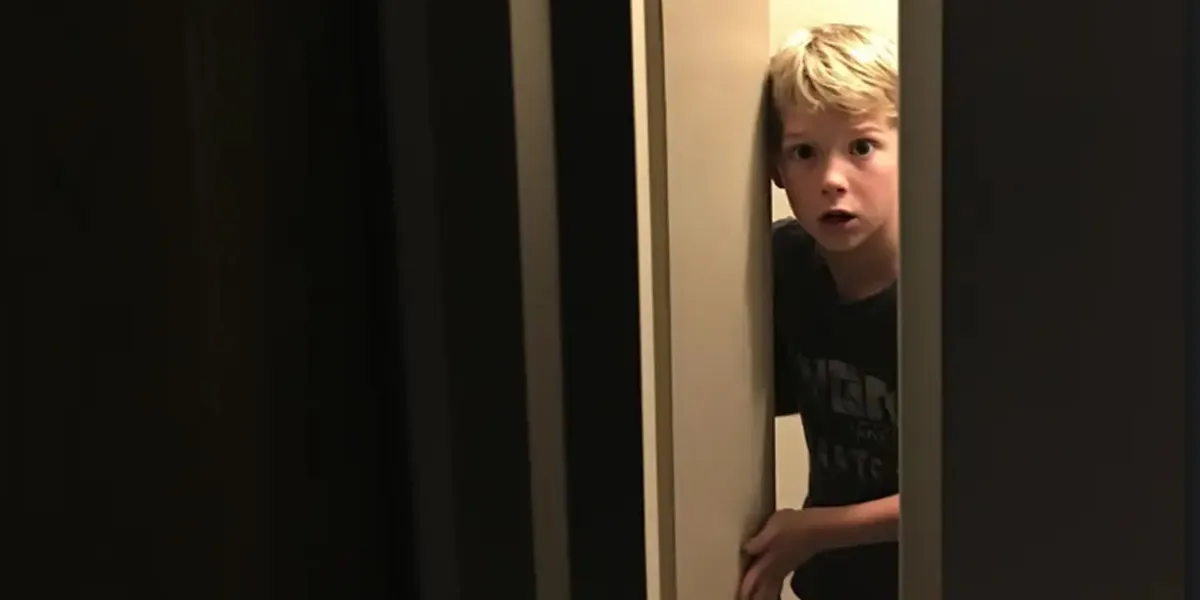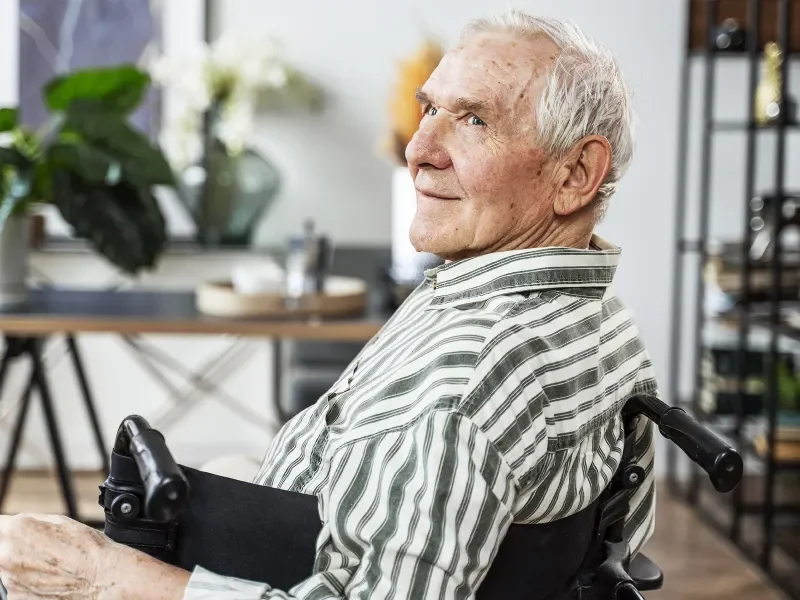Paul was the kind of student every teacher dreamed of—bright, polite, eager to learn. Then, one day, he stopped coming to school. No warning. No explanation. Just… gone. And when I finally found out why, it changed everything.
I never had children of my own.
People always told me I’d regret it, that one day I’d wake up with an aching emptiness that no career or hobby could fill. Maybe they were right. Maybe they weren’t. But I always told myself that my students were my kids, in a way.
Fifteen years of teaching had introduced me to every kind of child—troublemakers, prodigies, chatterboxes, loners. I loved them all, but Paul… Paul was different.
Eight years old, bright-eyed, and polite. He was the kind of student every teacher wished for—the kind who actually wanted to learn. While other kids passed notes or doodled in the margins of their notebooks, Paul’s were pristine. Perfectly lined numbers. Equations worked out step by step. No eraser smudges. Just focus and determination.
And then, one day, he was gone.
At first, I thought he was sick. It happened all the time—kids caught colds and stayed home for a few days. But when a week passed with no sign of Paul, I started to worry.
By the second week, I went to the office.
I stood there, arms crossed, heart pounding.
“Have you heard anything about Paul from my class?” I asked. “He hasn’t been to school in two weeks.”
The secretary, Mrs. Thomas, barely glanced up from her paperwork. “Parents haven’t called. Probably sick.”
I frowned. “But for two weeks? No updates?”
She let out a sigh, finally meeting my gaze. “Mrs. Margaret, I know you care about your students, but sometimes it’s best not to get involved in things that aren’t your business.”
A chill ran down my spine. Not my business? A child was missing, and I was supposed to just ignore it?
“Did you even try calling home?” I pressed.
She hesitated. “We… We sent a note home.”
A note. A note? Paul was eight years old, not an irresponsible teenager skipping class. Something wasn’t right.
“Do you have his home address?” I asked, voice steady.
Mrs. Thomas gave me a look—one that said she thought I was being ridiculous—but after a long pause, she scribbled it onto a sticky note and slid it across the desk.
I snatched it up and made my decision.
I was going to find out for myself.
I didn’t know what I expected when I pulled up to Paul’s apartment building. Maybe his mother answered the door, looking frazzled but relieved, apologizing for the miscommunication. Maybe Paul, sick in bed, promising to return soon.
But the moment I stepped into the dimly lit hallway, I knew I had been naïve.
The air smelled of mildew and old cigarettes, and the walls were stained with something dark in the corners. The overhead light flickered, casting eerie shadows.
I found apartment 27 and knocked.
No answer.
I knocked again, harder.
For a long, suffocating moment—nothing. Then, the door creaked open just an inch.
And there was Paul.
His face was pale, his once-bright eyes dull and sunken. The dark circles beneath them made him look like he hadn’t slept in days. His clothes were wrinkled, too big for his small frame, and something about him—something in the way he clutched the door—made my stomach twist.
“Mrs. Margaret?” His voice was barely above a whisper.
“Paul,” I exhaled, relief quickly turning to concern. “Where have you been? Why haven’t you been coming to school?”
He hesitated. His fingers tightened on the doorframe.
“I… I can’t,” he said softly.
I crouched down to meet his gaze. “What do you mean, you can’t?” My voice was gentle, but my heart was pounding. “Paul, is your mom home?”
His grip on the door trembled. “No,” he whispered.
My stomach sank.
“Then can I come in?”
Paul’s eyes darted behind him. He bit his lip.
“I can’t let you in,” he murmured. “You… You shouldn’t see this.”
I swallowed hard.
“Paul,” I said, steady but kind, “whatever it is, you don’t have to handle it alone. Let me help.”
For a long, painful moment, he just stood there, his small shoulders rising and falling with shaky breaths.
Then, finally—his fingers loosened.
And he opened the door.
The moment I stepped inside, my throat tightened.
The apartment was small and cramped. A single-bedroom space that smelled of unwashed clothes and the lingering scent of instant noodles. Dishes sat piled in the sink. A few empty cans of soup lined the counter. The air was thick with something unspoken—something heavy.
And then I saw her.
In the corner of the living room, a tiny girl, no older than three, sat cross-legged on the floor, clutching a worn teddy bear. Her blonde curls were tangled, her dress wrinkled. She didn’t look up, just rocked the bear back and forth, whispering something I couldn’t hear.
Paul followed my gaze. “This is my sister, Vicky.”
I blinked. His sister?
“You… You have a sister?” My voice came out softer than I intended.
He nodded, his fingers curling at his sides. “Mom has to work a lot. She doesn’t have money for daycare. So I stay home with Vicky.”
I stared at him, heart pounding.
“You… You’ve been taking care of her? By yourself?”
Another nod.
Something inside me cracked.
Paul was eight. Eight. He should’ve been in school, laughing at recess, worrying about nothing more than spelling tests and what was for lunch. Instead, he was here, in this dimly lit apartment, playing the role of a parent.
I crouched down, forcing my voice to stay steady. “Paul, how often does your mom leave you alone with Vicky?”
His eyes dropped to the floor.
“Most days,” he murmured.
A sharp ache settled in my chest.
“Does anyone else help?” I pressed gently.
He shook his head. “Sometimes she leaves food, but… sometimes we just eat noodles.”
I swallowed hard. My hands curled into fists to keep them from shaking.
I wanted to cry.
But I didn’t.
Because right now, Paul didn’t need my tears.
He needed help.
That night, I did something I’d never done before.
I went to the grocery store, filling my cart with everything I could think of—fresh fruit, bread, milk, and real meals. I grabbed diapers for Vicky, juice boxes, snacks, and anything that might make their lives just a little easier.
Then, I drove back to their apartment.
When Paul opened the door, his eyes went wide.
“You don’t have to do this,” he mumbled, his small hands gripping the frame like he wasn’t sure whether to let me in or shut me out.
I knelt, met his gaze, and said, “Yes, I do.”
For a moment, he just stared at me. Then, slowly, he stepped aside.
That was the beginning.
I made sure they had food, real food—not just instant noodles and crackers. One day, I sat down with Paul’s mother, who looked exhausted and defeated. I listened as she tearfully admitted that she didn’t know what else to do.
And most importantly?
I got Paul back in school.
I tutored him after class, helping him catch up on everything he had missed. I made sure he knew that no matter what, he wasn’t alone.
And for the first time in weeks, Paul smiled.
A small, tired smile—but a real one.
Fifteen Years Later
Life went on.
I kept teaching. Hundreds of students passed through my classroom—some I remembered, some faded into memory like old chalk on a blackboard.
And then, one ordinary afternoon, the door to my classroom opened.
A young man in a suit stepped inside, tall, confident. At first, I barely glanced up, assuming he was a visitor, maybe a new administrator.
But then—he smiled.
And I knew.
I shot up from my desk, my heart pounding. “Paul?”
He nodded, his eyes crinkling at the corners.
I felt tears burn my vision. “What are you doing here?”
He didn’t answer right away. Instead, he reached into his pocket and pulled out a set of car keys, holding them out toward me.
“For you,” he said.
I blinked, confused. “Paul, I—what is this?”
His smile softened. “You helped me when no one else did. You fed me when I was hungry. You taught me when I thought I’d never catch up. You saw me when the world didn’t.” His voice thickened. “And because of you… I went to college. I started my own company.”
My breath hitched.
“I wouldn’t be here if it weren’t for you,” he continued. “So… I bought you a car. It’s not enough, but… it’s something.”
I pressed a hand to my mouth, overwhelmed, words failing me.
And then, I did the only thing I could.
I pulled him into a hug.
As I held the boy—no, the man—who had once stood at his apartment door, scared and exhausted, I whispered the only words that mattered.
“I’m so proud of you, Paul.”


